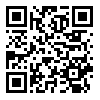Volume 3, Issue 1 (6-2022)
2022, 3(1): 69-86 |
Back to browse issues page
Download citation:
BibTeX | RIS | EndNote | Medlars | ProCite | Reference Manager | RefWorks
Send citation to:



BibTeX | RIS | EndNote | Medlars | ProCite | Reference Manager | RefWorks
Send citation to:
Alipanah M, Haidarian M, Pourmohamadreza-Tajrishi M, Nejati V, Vahedi M. (2022). The Efficacy of Computerized Cognitive Rehabilitation Software on Math Performance in Children with Dyscalculia. Journal of Childhood Health and Education. 3(1), 69-86.
URL: http://jeche.ir/article-1-58-en.html
URL: http://jeche.ir/article-1-58-en.html
Mohammad Alipanah, Milad Haidarian, Masoume Pourmohamadreza-Tajrishi *1, Vahid Nejati, Mohsen Vahedi
Abstract: (2353 Views)
Introduction: Dyscalculia is one of the neurodevelopmental disorders that usually characterized as learning and problem solving in mathematics. The aim was to determine the efficacy of computerized cognitive rehabilitation software on math performance in children with dyscalculia.
Research Method: In a quasi-experimental study, pretest and posttest design with a control group used. Thirty children in convenience selected from all 8 to 12 year-old students with dyscalculia educating in elementary schools at Sanandaj City. All children assessed by the Iranian Key-Math Test and randomly assigned to the experimental and control group. The experimental group individually participated in 10 sessions (twice a week; 30 to 45 minutes per session) and received the computerized cognitive rehabilitation software but the control group only received mainstream courses in the school. Math performance of two groups assessed after the last session and five-week follow-up later. The collected data analyzed by the analysis of variance with repeated measurement with SPSS version 23.
Results: The findings showed that the computerized cognitive rehabilitation software have no significant effect on math performance in children with dyscalculia and according to eta quotient it can conclude that only 0.03 % of variation in math performance is due to receive the computerized cognitive rehabilitation software. The investigation of time procedure in the experimental and control group showed that the time effect was not significant. We can conclude according to eta quotient, that 28% of the variation in math performance in the experimental group was duo to receiving the computerized cognitive rehabilitation software and there is no significant difference between two groups in three situations (pretest, posttest and follow-up).
Discussion: Regarding to not effective of the computerized cognitive rehabilitation software on math performance in children with dyscalculia, it is needed more studies in this field.
Research Method: In a quasi-experimental study, pretest and posttest design with a control group used. Thirty children in convenience selected from all 8 to 12 year-old students with dyscalculia educating in elementary schools at Sanandaj City. All children assessed by the Iranian Key-Math Test and randomly assigned to the experimental and control group. The experimental group individually participated in 10 sessions (twice a week; 30 to 45 minutes per session) and received the computerized cognitive rehabilitation software but the control group only received mainstream courses in the school. Math performance of two groups assessed after the last session and five-week follow-up later. The collected data analyzed by the analysis of variance with repeated measurement with SPSS version 23.
Results: The findings showed that the computerized cognitive rehabilitation software have no significant effect on math performance in children with dyscalculia and according to eta quotient it can conclude that only 0.03 % of variation in math performance is due to receive the computerized cognitive rehabilitation software. The investigation of time procedure in the experimental and control group showed that the time effect was not significant. We can conclude according to eta quotient, that 28% of the variation in math performance in the experimental group was duo to receiving the computerized cognitive rehabilitation software and there is no significant difference between two groups in three situations (pretest, posttest and follow-up).
Discussion: Regarding to not effective of the computerized cognitive rehabilitation software on math performance in children with dyscalculia, it is needed more studies in this field.
Keywords: Specific learning disorder, Dyscalculia, Children, Computerized cognitive rehabilitation software, Math performance
Type of Study: Research |
Subject:
Special
Received: 2022/04/6 | Accepted: 2022/05/20 | Published: 2022/05/31
Received: 2022/04/6 | Accepted: 2022/05/20 | Published: 2022/05/31
Send email to the article author
| Rights and permissions | |
 |
This work is licensed under a Creative Commons Attribution-NonCommercial 4.0 International License. |


